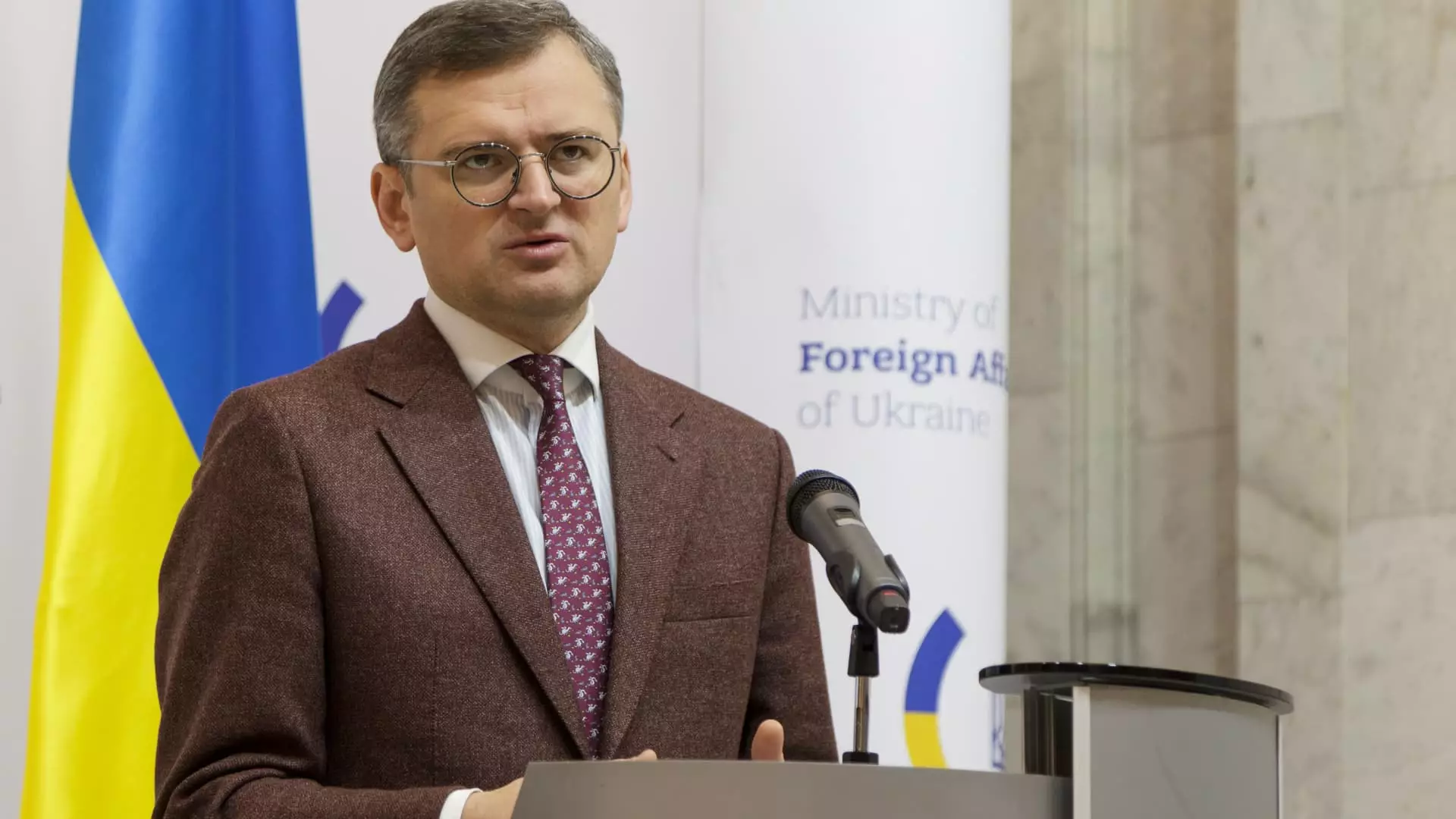The ongoing conflict in Ukraine, spurred by Russia’s military aggression, holds significant implications not just for Ukraine but also for the European continent as a whole. Former Ukrainian Foreign Minister Dmytro Kuleba has expressed urgent concerns regarding the possible repercussions if Ukraine falls to Russian advances. According to him, such an outcome could catalyze conflict directly on European soil. With tensions at an all-time high, Kuleba warns that the stakes are higher than ever, as the ramifications of Ukraine’s defeat would reverberate throughout Europe, challenging the stability and security that many European nations have taken for granted.
Kuleba’s assertions emphasize that the precariousness of Ukraine’s situation extends beyond its borders, potentially heralding an era of instability throughout Europe. He argues that while Russian President Vladimir Putin currently lacks the capacity to fight multiple wars simultaneously, he can indeed maintain a singular focus on Ukraine. The conflict, therefore, is a litmus test of European resolve against autocratic maneuvers. If this critical moment is not leveraged effectively, the possibility of future confrontations in European cities looms large.
NATO Membership and Security Solutions
One of the recurring themes in discussions surrounding the buffer against Russian aggression is Ukraine’s aspiration for NATO membership. Kuleba maintains this path is essential to avert potential escalations in the future, suggesting that merely delaying membership would not suffice to maintain peace. Instead, he advocates for a proactive approach that solidifies Ukraine’s integration into NATO as a deterrent against aggression.
Interestingly, Kuleba highlights that the security guarantees offered to Ukraine, while helpful, do not replace the need for NATO membership. Existing commitments from nations like the U.K. fail to provide the robust defense framework that full membership entails. A lasting solution, as Kuleba articulates, would not merely rest on temporary ceasefires but on a tangible, dedicated partnership with NATO that would ensure Ukrainian sovereignty and territorial integrity in the face of potential future threats.
Amid these discussions, the potential influence of U.S. foreign policy cannot be overlooked. As Kuleba remarks on the changing U.S. administration and the implications of Donald Trump’s return to power, the dynamics shift once again. Visualization of a peaceful resolution remains contingent upon Moscow’s engagement in meaningful negotiations. Kuleba underlines a crucial point: the onus of achieving peace lies largely with Russia, and it is imperative for international leaders to compel Putin to act in good faith.
Additionally, Kuleba stresses that the leadership in Ukraine is committed to not conceding territories irrespective of any mounting pressure. The idea of territorial compromise starkly opposes Ukraine’s constitution and the collective psyche of its people—emphasizing resilience against external aggression and a steadfast commitment to sovereignty.
Recent developments highlight the intensity and volatility of the conflict. Ukraine has faced significant assaults on its energy infrastructure, signaling the relentless nature of Russian military strategy. As reported, a cascade of drone strikes and missile attacks underscores not only the physical destruction but also the psychological warfare being waged through the destruction of essential services. In this context, the notion of ‘escalating back’ becomes paramount as Kuleba argues against passiveness in the face of aggression. As Ukraine pivots to more robust responses, the international community must recognize the serious need for support—both in terms of military hardware and diplomatic backing.
The precariousness of Ukraine’s position calls for a re-evaluation of military aid and strategic partnerships. The political landscape will continue to evolve, depending on the responses from Western nations, and their willingness to stand by Ukraine in the face of Russian aggression. With looming uncertainties, the unfolding situation mandates vigilance—both in policymaking and in public discourse—on the necessary measures required for maintaining peace and stability in Europe.
The future of European security is intricately tied to the outcome of the Ukrainian conflict. Dmytro Kuleba’s insights serve as a clarion call for the necessity of strong, united action against the creeping threats posed by Russia. The commitment to Ukrainian sovereignty and NATO’s open-door policy are fundamental to assure the protection and stability of the European continent. As the geopolitical landscape continues to shift, it is imperative that all stakeholders engage proactively to avert a wider conflagration, ensuring that history does not repeat itself, and that peace—anchored in mutual respect and sovereignty—prevails.



Leave a Reply